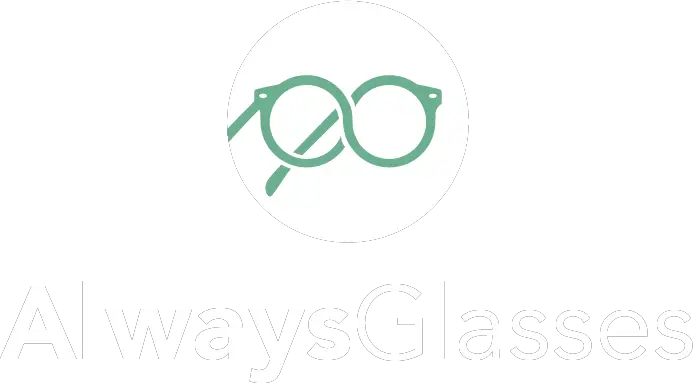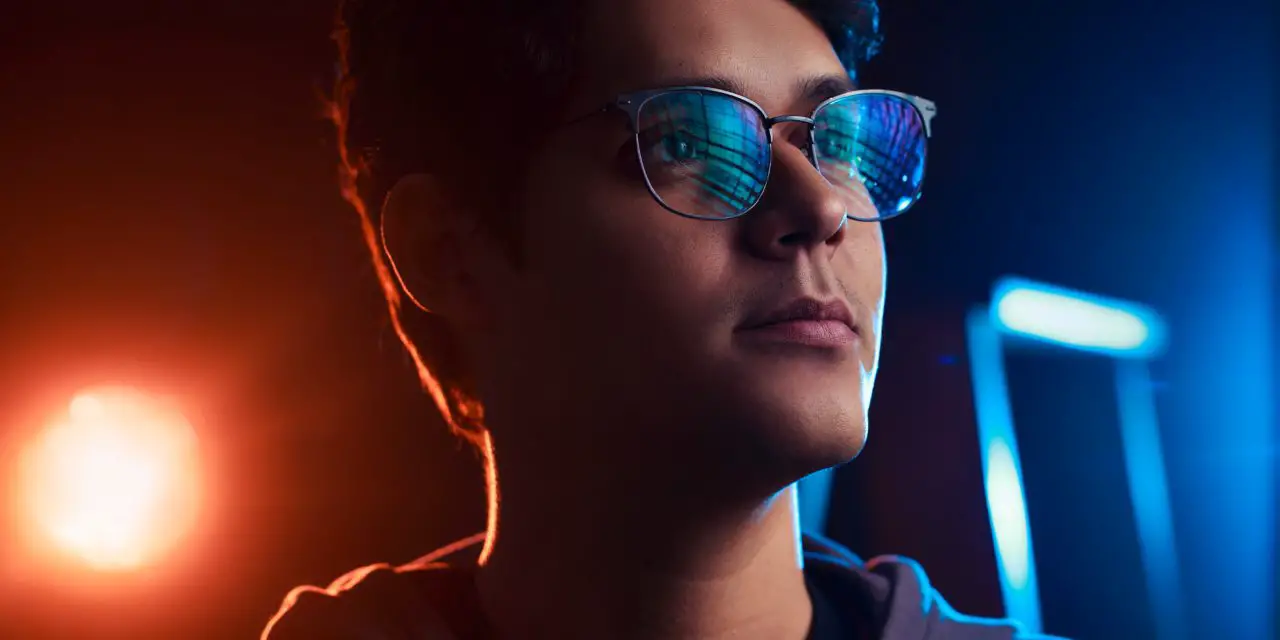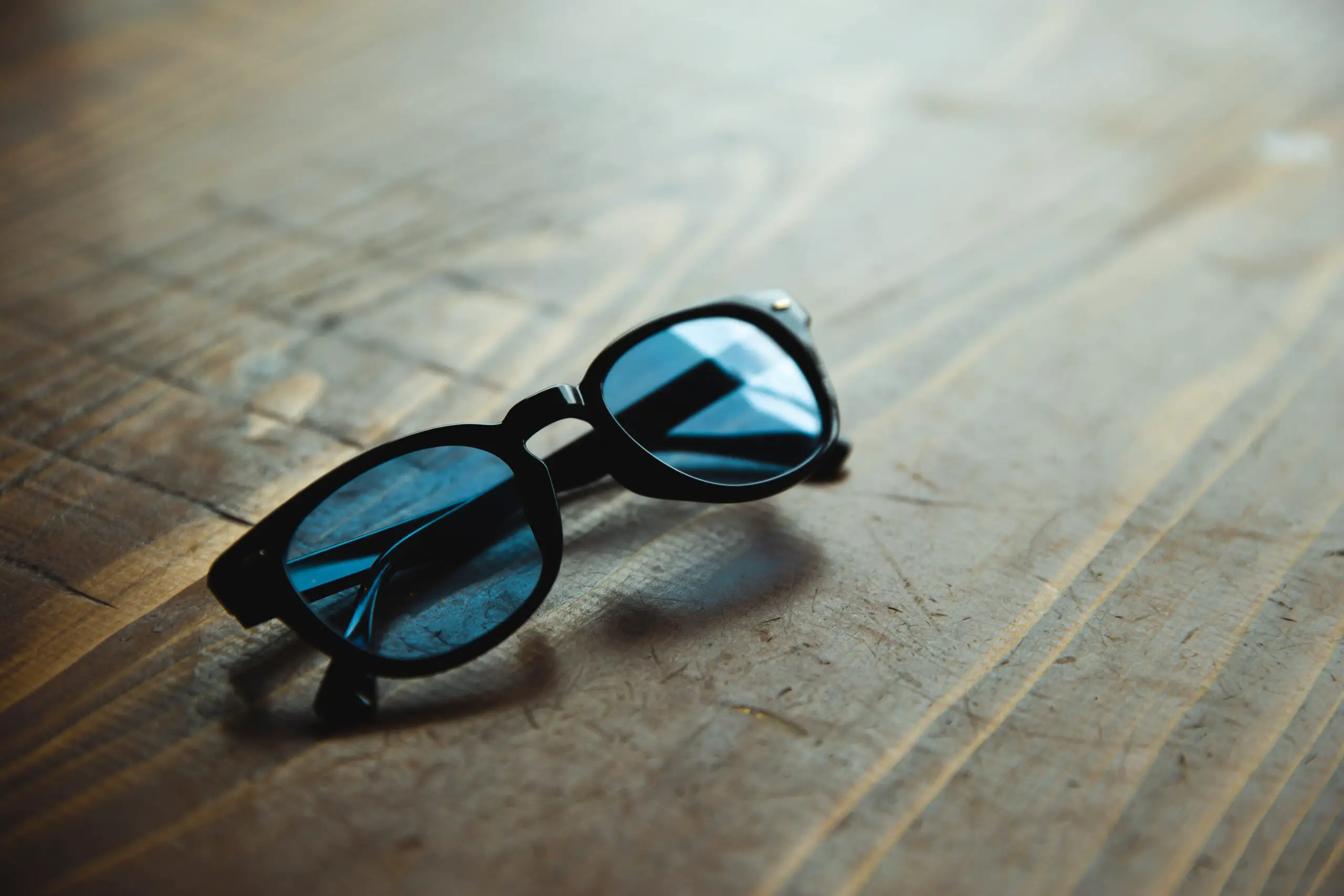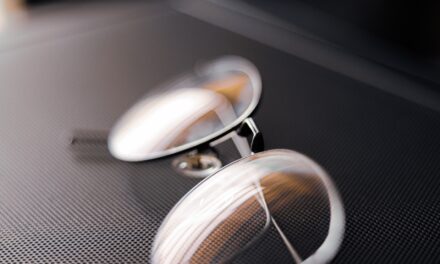Blue light glasses were created to help filter out potentially harmful blue light, typically those emitted from modern screens. But why do they sometimes seem to make our eyes feel worse?
There are a few reasons why wearing blue light glasses can hurt your eyes, such as eye adjustment for new users and wearing the wrong lenses. However, the main cause of this discomfort isn’t due to the glasses at all.
In this article, we will discuss the reasons why you might be experiencing discomfort from your blue light glasses in more detail. As you read, you’ll also learn what blue light is, some common misconceptions about blue light glasses, and how to best utilize them.
What is Blue Light and Its Effects?
If you’re the type of person who spends most of the day staring at a television, smartphone, or computer screen, then you probably know how painful this can be for your eyes.
In addition to eye fatigue, looking at these screens for extended periods can cause other health issues, such as regular headaches and reduced sleep or sleep quality.
Research has connected these to overexposure to blue light also known as high-energy visible (HEV) light. This is a naturally occurring, visible light spectrum with shorter wavelengths (measuring 450-495 nanometers) and higher energy than other colors.
In fact, blue light waves are nearly as powerful as UV rays, which are unsafe to look at directly with the naked eye.
Blue light and UV rays are present in our daily lives through sunlight, but the waves emitted from modern devices concern people the most.
This is mainly due to the significant amount of time the average person spends looking at digital screens and their proximity.
Blue light glasses were made to filter out blue light waves and reduce their effects.
If Blue Light Glasses are Supposed to Help, Why do My Eyes Still Hurt?
It can be extremely frustrating to purchase a pair of blue light glasses with the belief that they’ll make your life easier, only to find that your eyes still hurt when you wear them.
If you’ve never worn glasses or contacts before, the most likely reason is that your eyes are adjusting to wearing them.
Even if your blue light glasses aren’t fitted with prescription lenses, it might take your eyes and brain a day or two to adjust to looking past their frame, colored lenses, and other features with ease.
Another likely explanation would be that you’re not wearing the ideal lenses for blue light filtration.
These glasses are designed with either tinted lenses or clear lenses made with advanced light-filtering technology.
Amber-tinted lenses are the most effective, as they’re capable of filtering anywhere from 70-99% of blue light, versus yellow-tinted lenses (20-70%) and clear lenses (0-30%).
This makes them the ideal choice in any situation, especially at night when you must filter as much blue light as possible.
The Real Answer: It’s Probably Not the Glasses
The factors we discussed previously, namely eye adjustment and lens type, can contribute to your comfort when wearing blue light glasses and how effectively they filter these waves.
If you want the honest truth, the majority of eye pain and related issues you might be experiencing when wearing blue light glasses have nothing to do with the glasses themselves.
What’s the real culprit? Eye strain.
Blue light glasses are only designed to filter out blue light; they cannot reduce eye strain from looking at digital screens.
What tends to happen is that people realize they’re experiencing a lot of discomfort from looking at their computer or phone all day.
So they get a pair of blue light glasses, thinking this will solve the problem and allow them to maintain or increase screen time.
The blue light glasses are not solving the original problem, but they’re also making the situation worse because of this misconception that they eliminate eye strain and permit longer screen sessions.
How to Reduce Daily Eye Strain and General Fatigue
If you really want to reduce eye strain, there are two things you can do:
- Reduce the amount of time you spend staring at blue light-emitting screens: the less direct exposure your eyes have to these waves, the better
- Make a conscious effort to blink more: eye strain is predominantly caused by reduced blinking. When people look at screens, they have a habit of subconsciously staring too long and blinking less
Anyone experiencing sleep-related issues will want to cut out blue-light sources from their life as much as possible once the sun goes down.
These waves interrupt your natural circadian rhythms, making it more difficult to fall asleep at night and effectively reducing the number of hours of sleep you receive and/or your overall sleep quality.
In addition to blue light glasses, you can also alter the light settings on your devices, such as enabling “Night mode” to further reduce the blue light their screens emit.
Final Thoughts
While blue light glasses can be a great tool for ensuring blue light exposure doesn’t affect your sleep and limiting other health issues, they won’t reduce the eye strain that’s likely causing your discomfort.
For this, you’ll want to use the tips discussed here.





